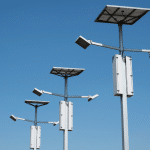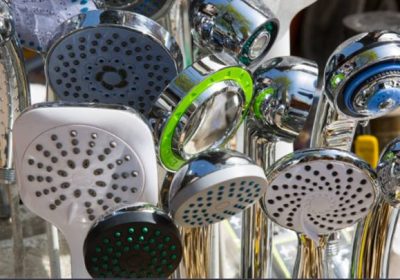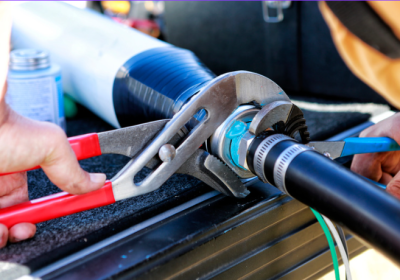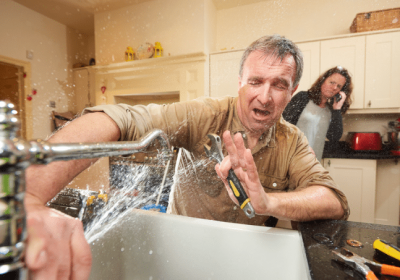Efficient Heat: The Complete Guide to Choosing and Maintaining Hot Water Systems in Australia
Conserving Money and Energy
Every Australian home relies on a hot water system. It offers convenience and comfort but accounts for significant energy usage, impacting finances and the environment. This guide examines different hot water systems, their benefits, energy efficiency, and the importance of regular maintenance to prevent costly problems.
“Heating water is the second-largest household energy use, ranging from 15% to 27%, depending on location.” (source: https://www.energy.gov.au/households/hot-water-systems)
What Is a Hot Water System?
A hot water system is an essential home component, providing heated water for bathing, cleaning, and cooking. Choosing the right system is crucial for adequate supply and energy efficiency tailored to your household’s needs. It matters.

Determining Hot Water System Size
This is a key initial consideration. Small homes with one or two occupants may suffice with a 90-litre capacity system. Larger households likely require a larger 270-litre tank system. An undersized system may consistently run out of hot water, increasing power costs. Size matters for hot water systems, so choose wisely before purchase and installation. Need a hot water system installed?
Understanding Solar Hot Water Systems
Our sun gives us energy. Solar hot water systems take this energy to warm water. They are great for saving cash and helping nature. These systems have solar panels on roofs that soak up sunlight. The sunlight warms water kept in a tank.
“Around 120,000 SWH systems got installed all over Australia in 2022, bringing the total count close to 1.5 million units.” (source: https://www.energycouncil.com.au/media/bytccxig/australian-energy-council-solar-report-q2-2023.pdf)

How Does a Solar Hot Water System Work?
Solar collectors in these systems absorb sunlight. This warms a heat-transfer fluid that heats the water in a storage tank. In cold places, extra parts prevent freezing so you get hot water all the time.
Advantages of Solar Hot Water Systems
Solar hot water systems cut energy bills. They also reduce harm to nature. Using the sun’s renewable energy lowers electricity use and carbon emissions.

Adding Value to Your Home with Solar Hot Water
Having a solar hot water system saves money on bills. It also raises the worth of your home. Buyers like seeing the eco-friendly savings these solar systems provide.
When installing solar water heaters, expect reduced expenses. Your water heating costs should lessen between 50%-80% on average.
Exploring Different Types of Hot Water Systems
Beyond solar, various options exist: electric, gas, heat pumps, geothermal systems. Each type has unique advantages, energy efficiency, and cost-effectiveness considerations.
Multiple hot water systems tailor to preferences, energy sources, budgets. Common types include:
- Electric Storage Hot Water Systems store heated water in insulated tanks until needed. Purchase, installation costs are lower, but ongoing energy bills prove pricier than other options.
- Gas Storage Hot Water Systems, like electric, employ insulated tanks storing heated water. Powered by natural gas or LPG, gas systems generally have lower operating costs compared to electric.
- Instantaneous (Continuous Flow) Gas Hot Water Systems heat water on demand as it flows through the unit, not storing it. Generally more energy-efficient than storage systems since they heat water only when needed.
- Hot water is made warm by solar collectors that gather energy from the sun. Electric or gas booster devices can help out on cloudy days or if more hot water is needed.
- Using outside air, heat pump systems warm up water. They are very efficient and can reduce energy bills, especially in mild weather.
- Electric instant systems heat water as it flows, no tank required. But they may cost more to run compared to gas-powered ones.
- Heat recovery systems capture wasted heat from things like air conditioning units. They reuse that heat to pre-warm water. Common in businesses but increasingly used for homes too.
What hot water system to choose depends on factors like energy sources, climate, household size, budget, and caring about the environment. Both initial costs and long-term costs are important when picking the best option. Rebates or incentives may be offered in Australia for certain energy-saving hot water systems.
Gas vs. Electric vs. Solar Hot Water Systems
Gas, electric, and solar hot water systems differ in efficiency, operating costs, and environmental impact. While gas and solar options offer major savings and environmental benefits, electric systems can work too with ways to save energy.
Boost Energy Savings with Gas Hot Water Systems
Gas hot water systems excel at efficiency, cutting costs when natural gas flows freely. Learn how they work and check energy ratings. Make wise choices for your home.
Replacing Hot Water Systems: Key Factors
Switch out hot water systems with care. Size up needs. Ensure compatibility. Follow local rules. Avoid blunders. Consult skilled plumbers. Smooth transition, peak performance assured.
Signs Your Hot Water System Needs Help
Watch for issues with hot water system performance. Lack of heat? Leaks? Strange noises? Prompt maintenance and repairs are essential. Ignore problems, pay later.
Neglecting Hot Water Systems: Risky Business
Skipping routine hot water system maintenance brings consequences:
- Sinking Efficiency: Sediment and minerals build up over time, coating tank insides and heating elements in hard water areas. The insulating buildup forces the system to work overtime heating water. Energy use spikes. Utility bills balloon.
- Corrosion eats away, causing tank leaks: Over years, water heaters get corroded inside, especially tanks. The anode rods do corrode instead of the tank, but if not checked and changed regularly, the tank itself starts corroding and can develop leaks. Proper servicing includes checking these sacrificial rods and replacing them on time to extend the tank’s lifespan.
- Electric heating elements eventually fail: In electric water heaters, the elements that heat the water can burn out over time, particularly if sediment buildup forces them to work harder. Regular maintenance helps identify these issues early so your water stays hot and the system runs efficiently.
- Thermostats control water temperature: The thermostat regulates how hot or cold the water gets. If it malfunctions, you could end up with water that’s scalding or icy cold. Routine checks ensure the thermostat is accurately set to an optimal, safe temperature.
- Neglected systems pose safety hazards: A neglected hot water system can create dangerous situations. For instance, the pressure relief valve – which releases excess pressure – can become blocked or stop working correctly. In that case, the tank might explosively rupture due to overpressurized conditions. Servicing ensures this essential safety component functions reliably.
- Maintenance maximizes system longevity: Without regular upkeep, your hot water system’s overall lifespan will be drastically reduced. Problems like sediment accumulation, internal corrosion, and component failures will force you to replace the system much sooner than if it received proper, consistent maintenance.
- Hot water failure inconveniences: Perhaps the biggest issue homeowners face is the hassle and expense of unexpected breakdowns. Regular maintenance checks can find and correct minor problems before major ones happen, preventing the nuisance of no hot water and costly emergency repairs or replacements.

Getting a licensed plumber for proactive service is key to avoiding these headaches and prolonging the system’s life.
Ways to Maximize Energy Savings
Adopting energy-saving practices like quicker showers, low-flow fixtures, and insulating hot water pipes can significantly cut energy use and utility bills, particularly with electric hot water systems.
How Long Hot Water Systems Last
With proper upkeep, hot water systems can operate between 5 to 15 years. Regular servicing and monitoring water quality help extend their lifespan and ensure top performance.
Investing in a suitable hot water system for your household needs is crucial for energy efficiency, cost savings, and environmental responsibility. Whether solar, gas, or electric, prioritizing regular maintenance and energy-saving habits ensures long-term reliability, performance, and benefits for your wallet and the planet.
In conclusion, choosing the right hot water system is vital for energy efficiency, cost savings, and environmental sustainability. No matter if solar, gas, or electric, regular upkeep prevents costly problems and optimizes performance. Prioritizing energy-saving practices and investing in renewable solutions like solar water heating allows homeowners long-term advantages while fostering a greener future.
Source: https://refinedplumbingsunshinecoast.com.au/ultimate-guide-to-hot-water-systems/
Images courtesy Refined plumbing Sunshine Coast









